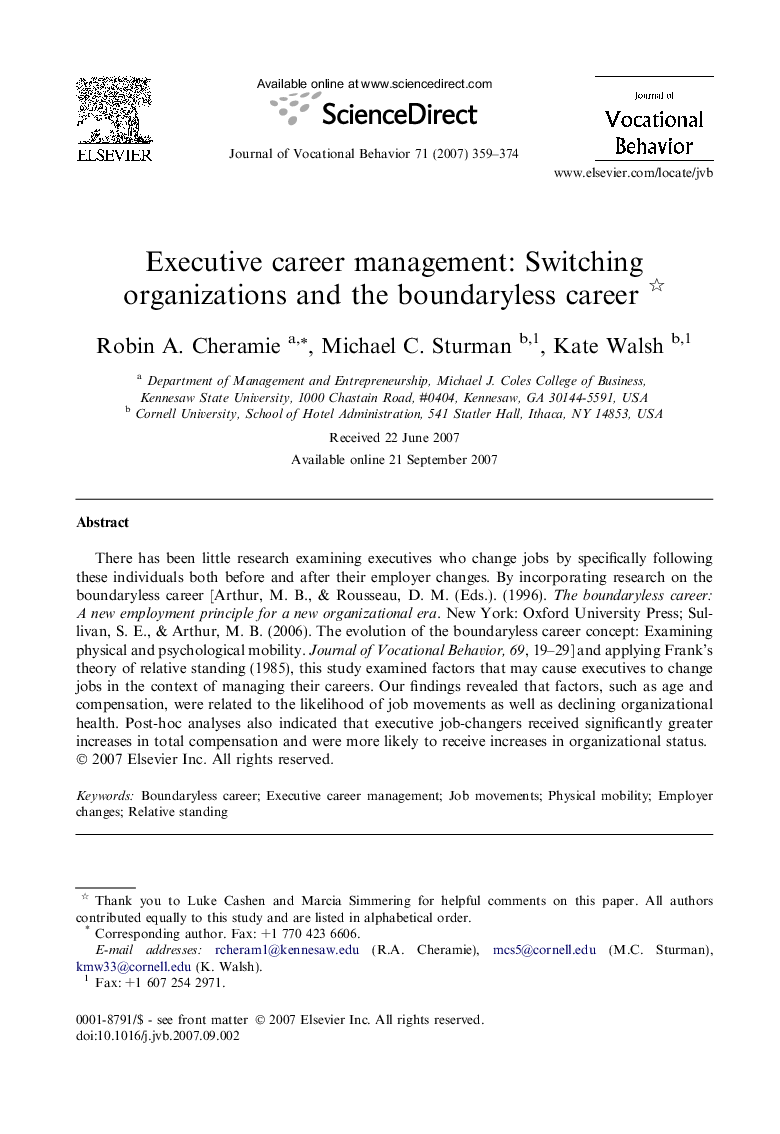| Article ID | Journal | Published Year | Pages | File Type |
|---|---|---|---|---|
| 887357 | Journal of Vocational Behavior | 2007 | 16 Pages |
There has been little research examining executives who change jobs by specifically following these individuals both before and after their employer changes. By incorporating research on the boundaryless career [Arthur, M. B., & Rousseau, D. M. (Eds.). (1996). The boundaryless career: A new employment principle for a new organizational era. New York: Oxford University Press; Sullivan, S. E., & Arthur, M. B. (2006). The evolution of the boundaryless career concept: Examining physical and psychological mobility. Journal of Vocational Behavior, 69, 19–29] and applying Frank’s theory of relative standing (1985), this study examined factors that may cause executives to change jobs in the context of managing their careers. Our findings revealed that factors, such as age and compensation, were related to the likelihood of job movements as well as declining organizational health. Post-hoc analyses also indicated that executive job-changers received significantly greater increases in total compensation and were more likely to receive increases in organizational status.
